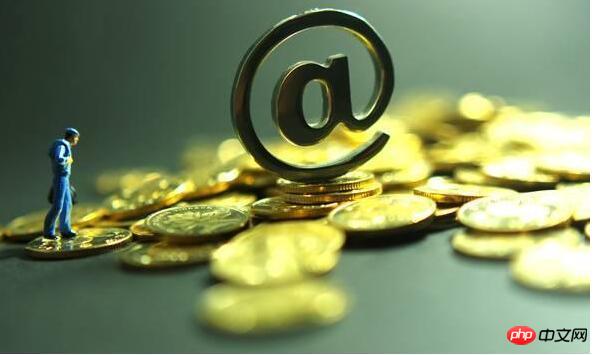Recently, the Internet of Things industry has become very popular. When many friends from outside the industry meet, they want me to introduce what the Internet of Things is. But when I talked about the characteristics and principles of the Internet of Things, I was confused and seemed restless. Therefore, in this article, I would like to use the application of the Internet of Things in the financial field as a case. On the one hand, I will introduce the application of the Internet of Things in finance, and on the other hand, I will also reflect the characteristics and usage of the Internet of Things technology as vividly as possible.
The value of the Internet of Things at the connection layer is only 5%. The greater value is at the level of providing information applications. It is an application technology that includes both hardware connections and software services, but more value is at the software level. Rather than saying that the Internet of Things is an emerging industry, it is better to say that the Internet of Things is a tool that provides information solutions.
So how to find the pain points of various industries and combine them with the technical characteristics of the Internet of Things has become the key to developing in-depth integration of the Internet of Things and industry applications. In this article, we analyze and elaborate on the application of the Internet of Things in the financial field.

Connection, perception, intelligence
The functions of the Internet of Things can be summarized as connection, perception, and intelligence. In fields such as manufacturing, logistics, and urban management, IoT technology is often used to improve efficiency and reduce costs. This brings about a problem, that is, in many fields, IoT technology is usually used to save money, save trouble, and facilitate management, but its ability to directly create income is not strong.
This is a very big reason why the explosion of the Internet of Things is not very rapid. The direct economic value it can generate is not obvious enough, and the rigid demand of users is insufficient. (For details, please refer to the original article "Who is killing the "outbreak" of the Internet of Things" by Wulianjianghu)
However, in the financial field, financial loans, mortgages, and leasing are routine business projects, among which there is effective management and control of assets. Avoiding financial risks is a very big demand pain point, which can generate direct economic income or avoid risk losses. Therefore, the application of the Internet of Things in the financial field will be implemented more quickly.
The risks caused by assets not being effectively managed and controlled are huge. Then the value that the Internet of Things can provide is the feature of real-time perception, which can exactly meet this pain point in the financial field, avoid financial losses, and create financial Profitable, thereby creating very direct economic value.
Correspondingly, many banks have also established specialized Internet of Things financial departments to rely on Internet of Things technology to serve the financial industry. In this article, we introduce the three directions of application of the Internet of Things in the financial field.
1. Financial Asset Monitoring
1. Auto Finance Monitoring System
The usual practice in the auto sales industry is that car dealers will not pay large amounts of cash directly to the car factory for purchase The car is then sold, but a loan is obtained from the bank. The bank pays the car manufacturer to the car. Once the car is sold, the bank is repaid. Before repayment, the dealer deposits the vehicle's certificate and keys with the bank.
(1) User pain points: This method creates a big risk, that is, the vehicle and the ownership of the vehicle are actually separated. First, dealers may engage in loan fraud and resell cars illegally. Second, after the dealer completes the sale, it is possible that the dealer does not notify the bank in time, thereby extending the repayment period and engaging in private lending.
(2) Solution: Internet of Things technology provides three applications to solve the monitoring risks that may arise from the separation of objects and object ownership.
Positioning function: Using dual positioning of GPS and mobile base stations, the location of the vehicle can be found.
Electronic Fence: Set the monitoring vehicle activity area, and send an alarm when it crosses the set area.
Sales status: Understand dealer sales status in real time, evaluate repayment ability, and provide basis for secondary financing.
2. Financial collateral monitoring system
When merchants borrow money from banks, they need to provide collateral, and banks need to monitor the collateral. At the same time, banks need to monitor the production and operation of enterprises at any time to dynamically control whether the enterprise can effectively repay loans.
(1) User pain points: Banks need to monitor static objects and dynamic production and operation conditions in as detailed a manner as possible. First, banks need to monitor and manage the asset collateral of their loan companies; second, they need to dynamically monitor the status of their production equipment and energy consumption levels, and understand the operating conditions of the loan companies in real time, so as to make risk assessment more accurate.
(2) Solution: Internet of Things technology provides three capabilities to solve the need to monitor static items and dynamic conditions at any time.
Real-time inspection of the collateral, master the integrity, and understand the location changes;
Real-time review of the company's production and operation status, warehouse and passenger flow conditions, and master the operating capabilities;
Master Enterprise production energy consumption, real-time collection of water and electricity consumption information, and a fundamental understanding of its solvency.
3. Financial leasing subject matter monitoring system
In the process of enterprise expansion and reproduction, in order to save cash flow, physical financing can be carried out, that is, the large production equipment purchased does not pay the full price, but Complete the payment in the form of installment payment
(1) User pain points: First, financial leasing companies need to confirm whether the equipment is safe and whether it has been misappropriated; second, whether the company is producing normally and has normal repayment ability; third, it needs to conduct data analysis and evaluation.
(2) Solution: Internet of Things technology provides three capabilities to solve the need for monitoring the subject matter of financial leasing.
Video surveillance based on pre-positioning instrument. The pre-positioning device is equivalent to 24-hour video security. It will alarm when the equipment is moved. It can also monitor the normal entry and exit of the warehouse.
Passive GPS positioning. Same as the above two applications, it has real-time positioning, electronic fence, demolition alarm and other functions.
Indoor positioning based on Bluetooth. This is a precise positioning technology based on the principle of trilateral positioning, which effectively suppresses the problem of large fluctuations in wireless positioning caused by environmental interference and improves positioning accuracy. Since the inventory and monitoring of subject matter are usually carried out indoors, high-precision indoor Bluetooth positioning is very efficient.
4. Insurance innovation based on Internet of Things terminals
The above mentioned are all relationships between banks and merchants, so based on Internet of Things technology, it is an application feature that can monitor things in real time. Insurance companies have also set up many types of insurance to ensure the safety of people, property and property.
(1) User pain points: Users have real-time monitoring needs for personal safety and cargo safety. They need to ensure that when dangerous situations occur, they can be warned quickly and may receive corresponding claims later.
(2) Solution: Internet of Things technology provides a variety of applications to solve the needs for safety and insurance of people, property, and things.
Electronic tape shipping insurance. Encapsulating goods with electronic tape with built-in IoT chips can ensure the complete sealing of items. At the same time, in the field of logistics, this technology also has great application space to monitor the location, status, temperature, etc. of items at any time. (For details, see "Exploration of Three Major Business Models of the Internet of Vehicles")
Children's insurance for wearable devices. Using passive GPS positioning technology, wearables can provide real-time positioning of children, electronic fences, dismantling alarms and other functions. Insurance companies have also specially set up related insurance products for this purpose.
2. Mobile payment
1. Smart POS machine
POS machine has been used for a long time, but its functions are constantly evolving. With the support of Internet of Things technology, POS machines can be understood as smartphones with the additional function of swiping bank cards. A large number of applications can be installed on POS machines in a modular manner, thereby expanding different application software and applying it in multiple scenarios such as taxis, business districts, and communities.

It should be noted that the relationship between POS opportunities and Alipay is not a replacement, but an integration. The POS machine can integrate all APP payment methods and also has the card payment function.
2. Other payment methods
Before QR code payment, NFC payment and RICC payment were already relatively active in the market. Even today, when payment APPs have an absolute advantage, this method of using mobile phones to directly complete payments already has obvious advantages in specific scenarios.
First, it can write payment information into the chip, so that users can complete automatic payment without any additional actions, and the user experience is better.
Secondly, personal information can also be written into the chip, thereby confirming the user's identity while making payment. This is very valuable in aspects such as highway toll collection and payment of social security fees.
Third, this type of payment method can complete the payment process without the Internet. It also has its unique application scenarios in some extreme environments.
Through the analysis of the above cases, we can see that IoT applications can be developed from three perspectives: connection, perception, and intelligence of objects.
In your production management process, if you need to monitor the location, status, and changes of "things" (which can be tangible or intangible pressure, temperature, gas, etc.), analyze their changes Features, and if a certain degree of automatic processing is required after identifying the status, you can try to use Internet of Things technology.
I believe that all walks of life have similar management pain points, so the space for IoT applications is very large, and ultimately the changes to production, management, sales, consumption, etc. will be huge.
 What are the applications of the Internet of Things?
What are the applications of the Internet of Things?
 The m2m concept in the Internet of Things
The m2m concept in the Internet of Things
 PHP Tutorial
PHP Tutorial
 What are the python artificial intelligence libraries?
What are the python artificial intelligence libraries?
 How to create a web page in python
How to create a web page in python
 Check disk space in linux
Check disk space in linux
 Cancel WeChat campaign
Cancel WeChat campaign
 How to import old phone into new phone from Huawei mobile phone
How to import old phone into new phone from Huawei mobile phone
 The m2m concept in the Internet of Things
The m2m concept in the Internet of Things




